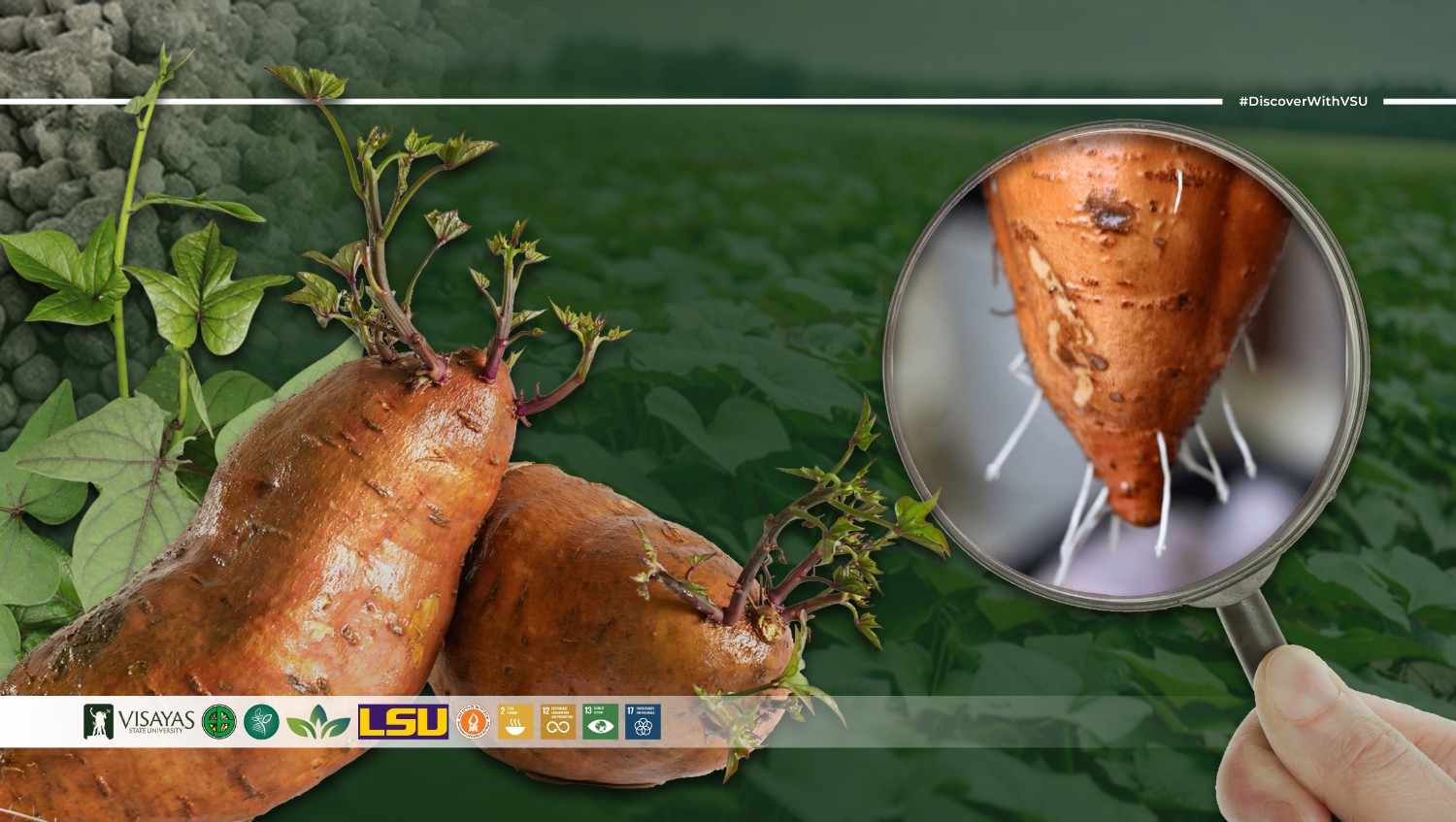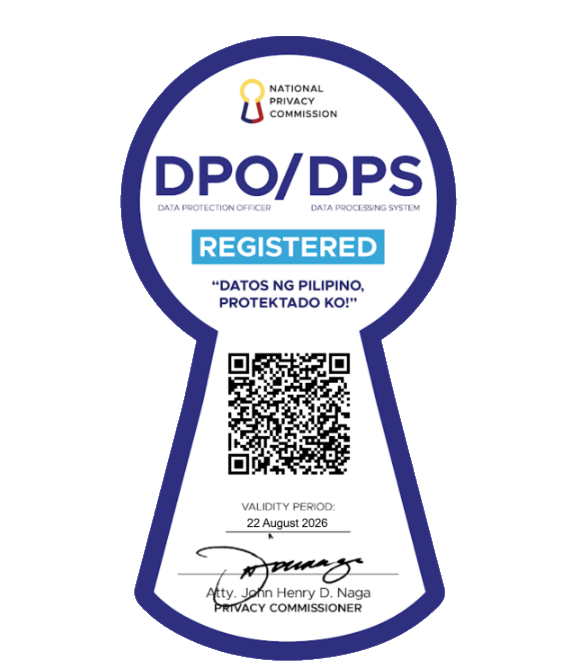#DiscoverWithVSU: VSU researchers help unlock the secret to bigger, better sweetpotatoes through smarter fertilizer use
- Details
- Written by Mike Laurence V. Lumen
-
Published: 14 September 2025

A groundbreaking international study has revealed how a simple soil nutrient, phosphorus, holds the key to helping sweetpotato plants produce more and bigger roots, the very roots that millions of families in the Philippines across the globe rely on for food and income.
Published in the September 2025 issue of the prestigious journal HortScience, the study shows that as phosphorus levels in the soil decline, sweetpotato roots activate a natural enzyme called sucrose synthase (SuSy).
This enzyme is responsible for strengthening the plant’s ability to transport sugars from its leaves into the roots, which in turn triggers the formation and bulking of storage roots. In simpler terms, phosphorus works as a natural signal that “switches on” the plant’s machinery for producing the nutritious, energy-rich roots that we eat.
This discovery uncovers a previously hidden molecular mechanism that directly links soil nutrient availability to root development, and hughlights how the plant senses and responds to its environment at a cellular level.
The research was led by scientists from Louisiana State University (LSU) in the United State and the Ben-Gurion University of the Negev in Israel, with an important contribution from the Philippines through the Visayas State University (VSU).
Representing VSU in this collaboration is a faculty member from the VSU Department of Plant Breeding and Genetics, Marissa Barbosa, who is currently on study leave while pursuing advanced work at LSU.
She co-authored the paper alongside Lisa Arce, Mae Ann Bravo, and Don LaBonte of LSU, Shimon Rachmilevitch of Ben-Gurion University, and Arthur Villordon of the LSU AgCenter Sweet Potato Research Station.
Their joint effort highlights how VSU researchers are working shoulder to shoulder with some of the world’s leading sweetpotato experts, and contributes local talent and perspective to a global scientific breakthrough.
RELATED: #DiscoverWithVSU:VSU grad students help pinpoint lead-resistant sweetpotato in US study
This discovery carries enormous significance for VSU and the communities it serves. More than just a staple crop in the Philippines, Sweetpotato or kamote, is a vital lifeline for families in rural areas, known for its resilience against typhoons, drought, and poor soils.
This study provides practical knowledge that can be applied in the field by uncovering how phosphorus availability directly influences the plant’s ability to form storage roots.
Farmers can benefit from smart fertilizer management, applying just the right amount of phosphorus to trigger optimal root development. This translates to higher yields, reduced costs from unnecessary fertilizer use, and a more sustainable way of farming.
For communities that depend heavily on sweetpotato, this means more abundant harvests, better food security, and improved income for farming households. Moreover, it revelas a tangible connection between nutrient management and crop physiology that gives farmers science-based strategies that were previously unavailable.
Perhaps more importantly, the findings lay the groundwork for future innovations in agriculture. They suggest that breeding programs can select for sweetpotato varieties that are more efficient at using phosphorus. They also show that soil management and nutrient availability can act as natural cues that determine whether sweetpotato plants invest energy into producing food-rich storage roots or remain in a less productive stage of growth.
In the long run, these insights could help Filipino farmers adapt to the uncertainties of climate change by making sure that each plant produces the maximum possible food, no matter the conditions.
This article is aligned with Sustainable Development Goal (SDGs) 2: Zero Hunger; SDG 12: Responsible Consumption and Production; SDG 13: Climate Action, and; SDG 17: Partnership for the Goals.


